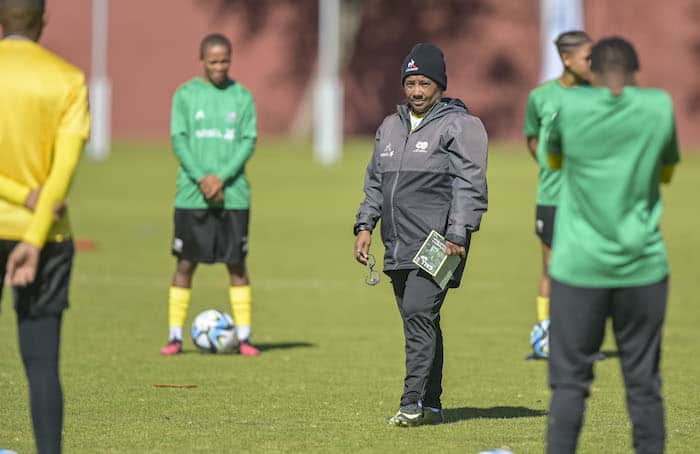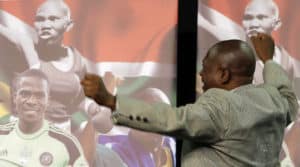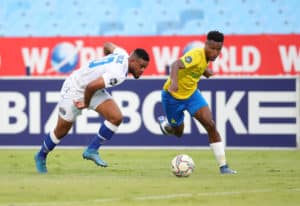Banyana Banyana coach Desiree Ellis heads to her second Women’s World Cup in Australia and New Zealand in July and talks exclusively o Mark Gleeson just before the team’s departure.
The South African Women’s national team have been drawn in Group G alongside the likes of Sweden, Italy and Argentina.
Banyana are scheduled to face Sweden in their opening match at the Wellington Regional Stadium followed by facing Argentina in their second match at the Forsyth Barr Stadium and they will end the group stages when they take on Italy at the Wellington Regional Stadium.
What are Africa’s chances of some sort of Women’s World Cup shock in the way Morocco shook up Qatar?
I think Morocco has shown that it is possible. The other African countries that were in Qatar didn’t do that well, but we’re going to a second World Cup, you have Nigeria that have been ever present and we have Morocco, who have done fantastically with a women’s programme.
Zambia always surprises; you look at what they did at the Olympic Games, even though they didn’t get through to the next round. But they surprised a few. And I think football is now not about the rankings anymore. It’s about what happens on the field.
Our team, for example, is four years older, much more mature; we have a couple of players playing in good clubs in Europe, and we are coming off the Wafcon (Women’s Africa Cup of Nations) victory. There’s a little bit more pressure now after doing well at Wafcon. But I think it’s possible to get out of the group stage, because you’ve got to have a little bit of ambition.
We can’t be naive, though the groups are tough. But I think Morocco showed, when they were not given a chance in their group in Qatar, that it’s possible. They not only went through, but almost won the World Cup. So you have to make sure that you are in peak physical condition and that everybody executes the plans. If you can get a positive result in your first game, then you plan further.
I don’t think we must undermine ourselves as a continent, because we have tremendous talent. We must just make sure that everything leading up to that works out properly. I think there could be a few surprises, not just with the teams from Africa, but elsewhere too.
Already, there were many upsets during the qualifiers and particularly the playoffs.
There has always been a gap between the established powers of women’s football and the rest, but how big is that now … or has it even closed?
Look, I think there is still a gap. When you look at the Europeans, for example, they play on a much more regular basis. You can just jump on a bus and then go to the Netherlands or go to Belgium, or go to Germany and play, but it’s not that easy for us.
Most of the teams we play, or Nigeria plays, are ranked much lower and don’t really, with all due respect, give us the resistance or preparation that we’re looking for.
And a lot of the countries in Europe, the Americas, as well, are fully fledged professionals, and that makes a huge difference. I think that countries have caught up, but you still have that gap, because of the lack of regular top opposition. But it’s slowly closing. You look at the men’s World Cup: A couple of results were very surprising, but it’s the work that people put in.
And I think that’s going happen with men’s and women’s World Cups going forward. I feel there’s still a gap between the top nations, but it’s slowly closing.
Can you describe how drastic has been the growth of women’s football in Africa, with all the cultural and negative perceptions about a woman playing sport that have been broken down? Would it be fair to describe it as revolutionary?
I think so, yes. I think when you look back, we had our first game as a women’s national team when I was captain, and we were training with one T-shirt each that we had to wash overnight to use again the next day. And if you didn’t come back for the next game, somebody else would have that T-shirt. I played over a period of almost 10 years and only got 32 caps. Now they play almost half as many matches in a single year.
Never in my wildest imagination would have ever thought that we would play the number-one country in the world (the US) twice. We’ve played Sweden, Netherlands, France. Back then in the day, you could not have imagined all the competitions we now have, such as the CAF Champions League, the different zonal tournaments, different age group tournaments. It’s really changed.
But presumably, there is still much to do?
Most definitely. You know, I think the biggest challenge is schools football in the country. That foundation phase is so key for us in women’s football, because if you pay a visit to any local football association or any region, you have boys playing from as young as seven, eight years old, but it doesn’t really happen in the woman’s side.
I think the ultimate really would be to have a professional league. Everybody’s yearning for that, with the best playing against the best every week, week in and week out. And then you really see the competitiveness and how things change. Nowadays, there are a couple of games that are really good claims, but many others that don’t live up to the standard.
What was your reaction to the draw? You start against Sweden, then Argentina and Italy in Group G – it was not the world’s worst draw, but it is pretty tough…
No, I’d say we are in a reasonable group, although I’m not underestimating the teams. But we could have had the US or England, or Germany like we had in France four years ago. Those are top- ten countries. Sweden are now ranked number three and not for nothing.
They did so well at the Euros and got silver at the last Olympics. Italy are a rising force, and Argentina too.
They’ll be wanting to emulate the men’s team! But we’ve got to look at what we’ve learned from four years ago and that our players have matured tremendously over the past four years, and hopefully that can carry us through, but nonetheless, it is not going to be easy. At the end of the day, we’ve got to match ourselves up, and make sure we have planned and prepared properly. Then you have a chance.
I think everybody goes there with ambition; everybody goes there to put their best foot forward.
If our players really step up, which we believe they can, then they can be a few surprises. But it depends on that first game, of course, which is the most important game.
South Africa is bidding to host the next Women’s World Cup in 2027. What is the potential impact of that?
Winning the Cup of Nations has already proven a major inspiration to young girls around the country; there are so many more really playing now. More girls are playing everywhere in the world, and they’re getting younger and younger.
A World Cup in Africa would just break down even more barriers and inhibitions and be a brilliant boost to get everyone playing.
Photo by Christiaan Kotze/BackpagePix





